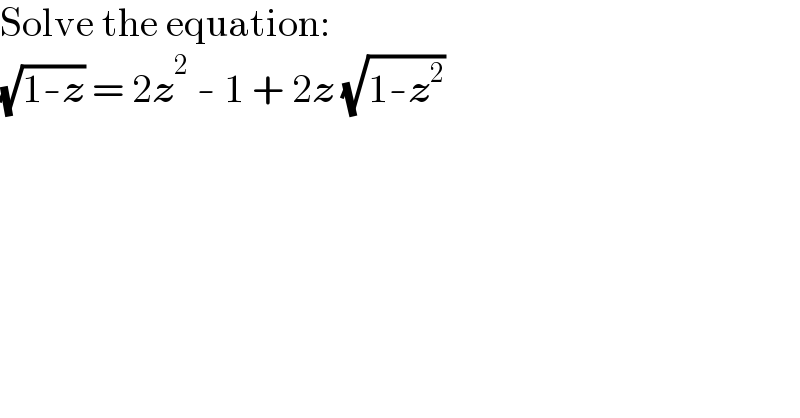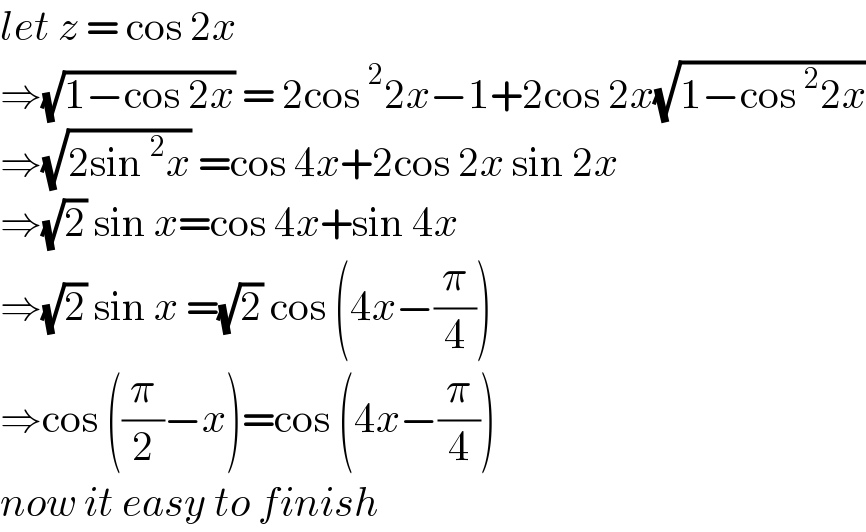
Question and Answers Forum
Question Number 153079 by mathdanisur last updated on 04/Sep/21

Commented by MJS_new last updated on 04/Sep/21

Answered by liberty last updated on 04/Sep/21

| ||
Question and Answers Forum | ||
Question Number 153079 by mathdanisur last updated on 04/Sep/21 | ||
 | ||
Commented by MJS_new last updated on 04/Sep/21 | ||
 | ||
Answered by liberty last updated on 04/Sep/21 | ||
 | ||
| ||